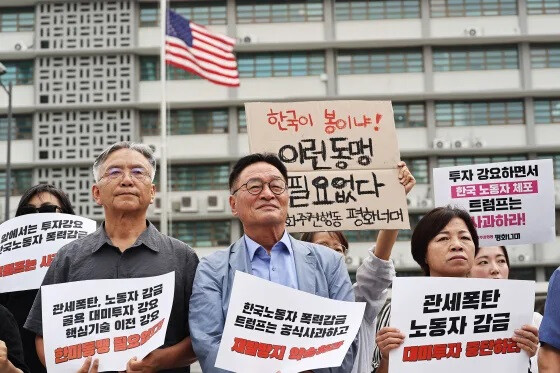
In a concerted effort to prevent a flight of capital, several U.S. states are actively courting Korean companies following a contentious immigration raid in Georgia that detained over 300 Korean workers. The incident, which occurred on Sept. 4 at an HL-GA Battery factory, has prompted some firms to reconsider their U.S. investment strategies, sparking a diplomatic and economic scramble.
Georgia Governor Brian Kemp, who initially supported the raid, has since reversed his stance, acknowledging the need for reforms to the U.S. visa system. His pivot came after President Donald Trump stated that foreign experts were needed to train American workers and that he did not want to "frighten off" foreign investment. Similarly, Louisiana Governor Jeff Landry reassured Hyundai Steel that its planned $5.8 billion mill is on track, while Texas Governor Greg Abbott announced a $250 million subsidy for a new Samsung Electronics semiconductor plant, underscoring the company's crucial role in his state's economy.
Beyond state politics, American institutions and business leaders are also expressing concern. Trip Tollison of the Savannah Economic Development Authority highlighted the indispensable expertise of Korean workers in battery cell technology. A report by the U.S. Congressional Research Service noted that the Georgia incident has raised questions in Korea about whether U.S. immigration policy is at odds with efforts to boost domestic manufacturing through foreign investment.
Meanwhile, the Korean government has established a task force to address the visa issue. Although major companies like Hyundai Motor have publicly affirmed their commitment to U.S. projects, reports suggest some are weighing alternatives in Mexico or Canada. The situation is further complicated by civic groups and labor unions in Korea, who are staging protests and calling for companies to abandon their U.S. investment plans in response to the workers' detention. This evolving saga highlights the delicate balance between enforcing immigration laws and attracting the foreign investment critical to economic growth.
[Copyright (c) Global Economic Times. All Rights Reserved.]






























